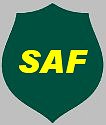| Back to |
|
|
| MSUE Resource Library | ||
| Newspaper Article Index | ||
| Forest Information Main Page | ||
| MSAF Home Page |

Family Forest Succession
Article #156, May 2010
By Bill Cook
Over the next five years, about ten million acres of family forest land in the United States is expected to change ownership. That’s roughly half the size of Michigan’s total forest acreage. Or, more forest than grows in each of 17 states.
What might this mean for current owners? The forest resource? Society?
If current trends rule the day, then most of that ten million acres will be sold off, probably parcelized, and the proceeds distributed among heirs. Those ten million acres will provide diminished wildlife habitat and fewer ecological services. The multi-billion dollar forest industry will have to work harder to find wood supply and wood product prices may increase. The forest value as a carbon sink will drop. The nation will become less ‘wild’ by ten million acres.
As a current forest owner, if this scenario doesn’t sit right, there are steps that can be taken to increase the odds of keeping the family forest intact for future generations. Rarely does this happen naturally. Effort and planning will be required.
Michigan State University Extension has developed a Family Forest Succession program for current owners and heirs designed continue their family forest legacy, in cooperation with the Michigan DNRE, the USDA Forest Service, and the highly successful national Ties to the Land program. A pair of these of these programs will be offered beginning on 13 May in Cadillac and 1 July in Escanaba.
The program delivery comes in two parts. The first session focuses on family communication and goal setting. This is often the hardest part of the process. Identifying the range of values can be both emotional and surprising. Typically, everybody involved is on a different page, even between spouses. The second session, held a few weeks later after some homework, reviews the various legal tools available to implement the family wishes. Selecting the appropriate tools, based on family discussions, will be important.
The Family Forest Succession program provides instruction and a workbook with a CD of resource materials. Between the two sessions, participants are asked to have family discussions about the future of the family forest. After defining a vision, various estate planning mechanisms will be presented, each with a set of pros and cons.
More information about these two programs can be found on the calendars for the Michigan Society of American Foresters [http://michigansaf.org] or Michigan Forest Pathways [http://MIforestpathways.net]. Additionally, some of the MSU Extension and Conservation District offices have flyers, or can obtain them.
- 30 -
Trailer
Bill Cook is an MSU
Extension forester providing educational programming for the entire Upper Peninsula.
His office is located at the MSU Upper Peninsula Tree Improvement Center near
Escanaba. The Center is the headquarters for three MSU Forestry properties in
the U.P., with a combined area of about 8,000 acres. He can be reached at cookwi@msu.edu
or 906-786-1575.
Prepared
by Bill Cook, Forester/Biologist, Michigan State University Extension, 6005
J Road, Escanaba, MI 49829
906-786-1575 (voice), 906-786-9370 (fax), e-mail: cookwi@msu.edu
Use
/ reprinting
of these articles is encouraged. Please notify Bill Cook.
By-line should read "Bill Cook, MSU Extension" Please use the article
trailer whenever possible.
Michigan State University is an affirmative action equal opportunity institution. The U.S. Department of Agriculture prohibits discrimination on the basis of race, color, national origin, gender, religion, age, disability, political beliefs, sexual orientation, and marital status or family status. (Not all prohibited bases apply to all programs.)

This website is maintained by Bill Cook, Michigan State University Extension
Forest in the Upper Peninsula. Comments, questions,
and suggestions are gratefully accepted.
Last
update of this page was
29 April, 2010
This site is hosted by School of Forest Resources and Environmental Science at Michigan Technological University.